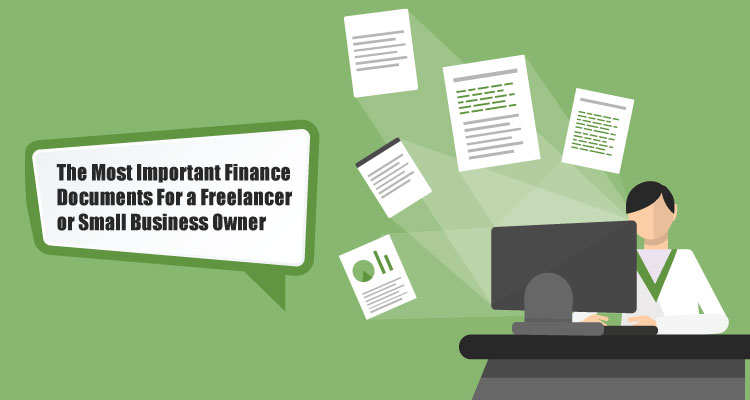Small business owners and freelancers have a hard time staying on top of their finances and finance documents. While it’s not always a priority, it’s vital for the health of your business that you remain aware of where and how you’re spending your money. Are you spending more than you are bringing in? You need to have a handle on this information.
That’s why the following three financial documents are so important. They can help you understand whether or not you’re bleeding money and how you can take the appropriate steps to fix the problem.
Table of Contents
ToggleCash Flow Statement
Your cash flow statement is probably the most important, and easiest to understand, financial document in your possession.
The reason? It shows you how much cash your business has generated and how much you’ve used over an accounting period — usually every month or even quarterly. In other words, it helps you determine the trends in your cash management so that your business can stay afloat by meeting all of its financial obligations.
A cash flow statement includes:
- Cash inflows like sales, loans, and investments.
- Cash outflows like your monthly business expenses and purchases such as new equipment.
Your cash flow statement can be calculated by using this simple formula:
*Ending cash balance = beginning cash balance + cash inflows – cash outflows
Balance Sheet
Many accountants describe the balance sheet as a “snapshot” of the company’s financial position at a point in time, usually at the end of the year. This is because “it allows someone — like a creditor — to see what a company owns as well as what it owes to other parties as of the date indicated in the heading.”
Ultimately, the balance sheet uses the following equation:
*Liabilities + Owner’s Equity = Assets
Your assets should be equal to your liabilities and owner’s equity. This means that both sides need to be balanced.
Assets include current assets, such as cash or anything that could be sold for cash like inventory, and fixed assets. Fixed assets are anything that you’re not planning on selling, such as land or equipment.
As for liabilities, there are short-term liabilities, like accounts payable, and long-term debt, like a bank loan.
Owner’s equity is simply the money that you’ve invested into your business minus the funds you’ve withdrawn and then added into your net income since the start of your business.

Profit and Loss Statement
Your profit and loss statement, which is also known as an income statement, has one main goal; to let you know if you’re making any money or not.
This statement contains two parts; your revenue and operating expenses.
Your revenue consists of:
- Operating revenue, like the sale of goods and services.
- Non-operating revenue, such as rent from subleasing.
- Gains on long-term asset sales, like the value of property and equipment.
Expenses include:
- Operating expenses, like payroll and overhead.
- Non-operating expenses, such as the interest of a loan.
- Losses from asset sales.
In most cases, freelancers will only have to be concerned about operating revenue and operating expenses.
You can find a guide for further explanation, and handy template, from QuickBooks.
Other Documents For Your Consideration
While the finance documents listed above should be your top priority, there are several other documents that you should have prepared.
Have these documents ready, especially when tax season rolls around:
- Invoices. These are more important for freelancers than small business owners since they’re essential for getting paid for the services that you’ve provided for clients. Invoices are also a record of your financial activity, crucial for your cash flow, and are considered legally binding agreements.
- Vehicle log. This is only essential if you use a vehicle for business purposes. You can deduct the car’s operating expenses when you file your taxes.
- Summary of home-office expenses. If you work from home then you can deduct a percentage of your utilities, repairs and maintenance, home insurance, and mortgage interest or rent.
- Form 1098. This will be issued by your mortgage company and can be used to claim the mortgage-interest deduction, as well as part of your home-office deduction.
- Form W-9. If you’ve hired any outside contractors you’ll need to issue this form to them so that the IRS knows how much you’ve paid them – even though don’t have to withhold income taxes from that individual. If you have employees who have made more than $600, and you withhold income taxes, social security, or Medicare taxes, then you’ll need Form W-2 for each employee.
The Bottom Line
If you want your business to succeed, whether you’re operating a small business or are a home-based freelancer, you need to have these documents in order so that you can take control of your finances and establish a budget, More importantly, these finance documents can help you determine if you’re turning a profit or hemorrhaging money.
















